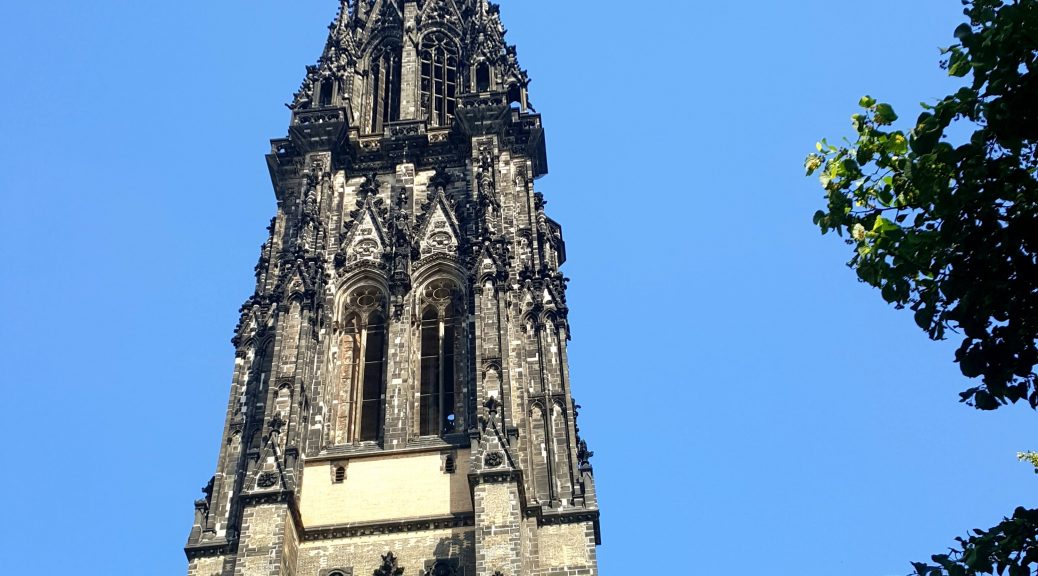
8 Brutal Daily Reminders That You’re Living in a Country Once Ravaged by World Wars
In a lot of ways, daily life in Germany is comparable to life in the States. Living standards are similar, the basics are readily accessible, status quo exists, and people love to complain about the weather. Then, when you least expect it, baaaam – you are confronted head-on with some brutal reminders that you are living in a country that was ravaged by two world wars on its own soil, both of which it sorely lost.
These are very strange moments for me as not only a non-German but also a non-European, having lived in a nation never directly touched by war (other than acts of terrorism, of course). When you see Mercedes flying past you on the highway and walk past one luxury shop after another in a vibrant downtown, it’s easy to forget Germany’s rough past.
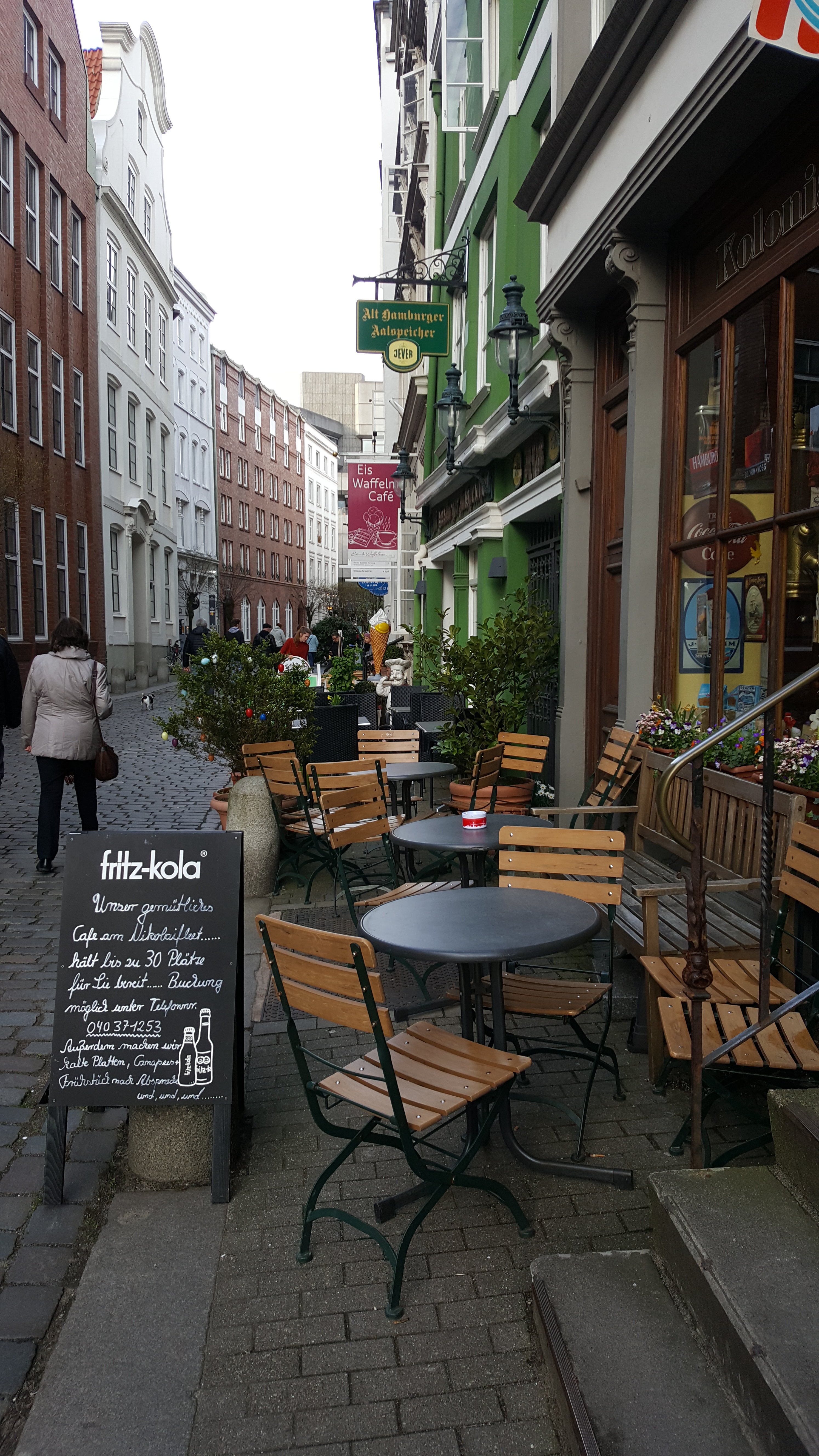
But you won’t need to wait long for a reminder – there are still shocking relics of the Third Reich and World War II present in day-to-day life here, over 70 years after the war ended, just to sober you up!
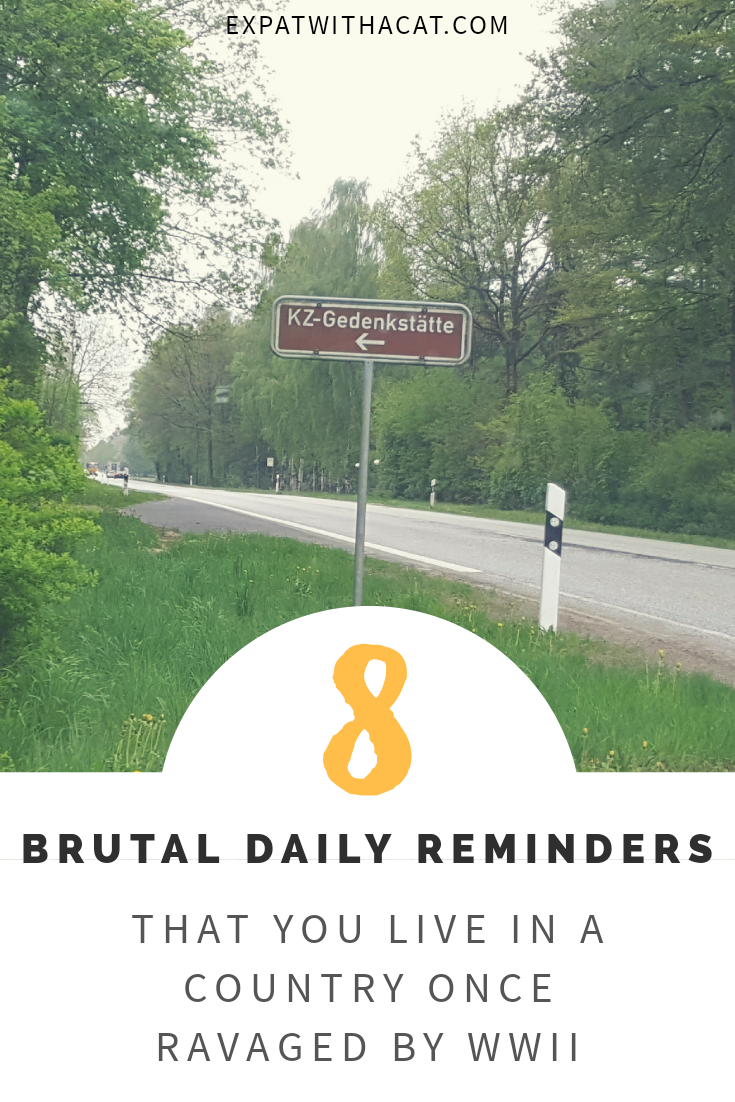
1) Just your friendly neighborhood concentration camp
Probably the most sobering of all remnants of WWII are the concentration camp memorials. Here, what is left of the camps can be visited year-round for free, as far as I know.
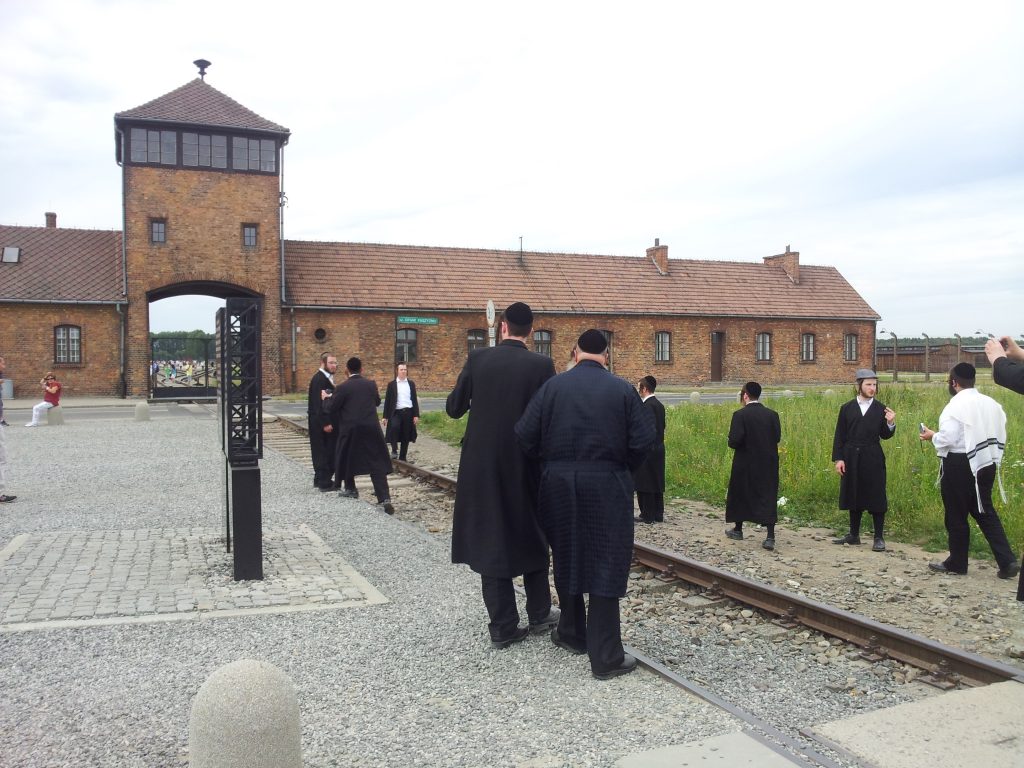
This is an important and emotional undertaking, both very educational and deeply disturbing, but necessary. On a visit to a camp you can expect to see some rubble or partial constructions left over as ruins on the grounds and renovated or replicated buildings, as well as a museum with personal items, documents, photographs, and general information. For larger ones, tours are available. For a country the size of Montana, it’s surprising to imagine that there were over 40,000 work camps and ghettos run by the Nazis and their allies! This means there are memorials all over the place, making a collision between the modern and past eras unavoidable.
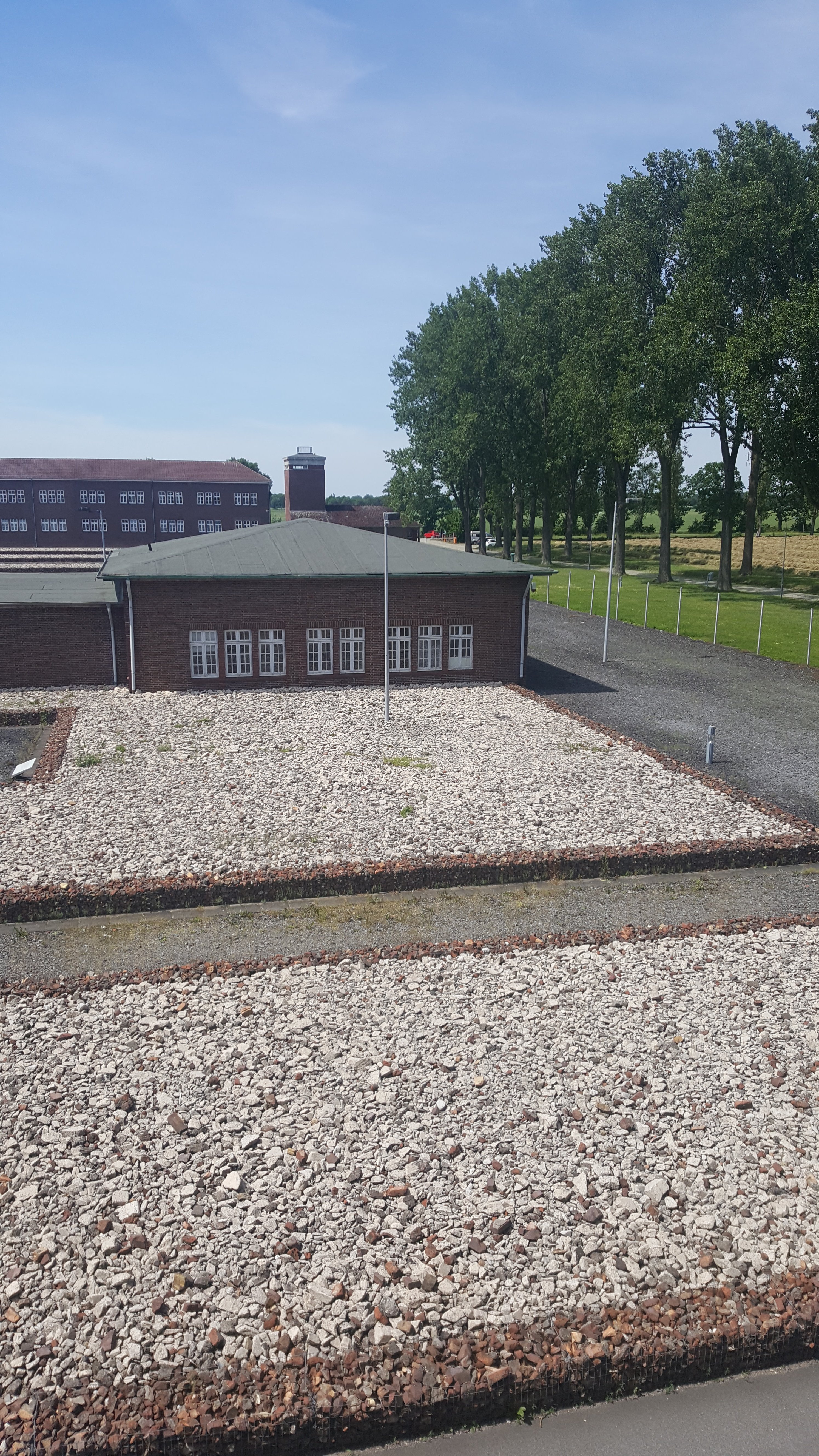
It is really hard core to be lost in your thoughts while on a drive, trying to remember what all you wanted to get at the store, and then to notice an “open” sign for something that you realize is a concentration camp upon passing by. This one in the woods on the way to my in-law’s place jumps out at you last-minute:
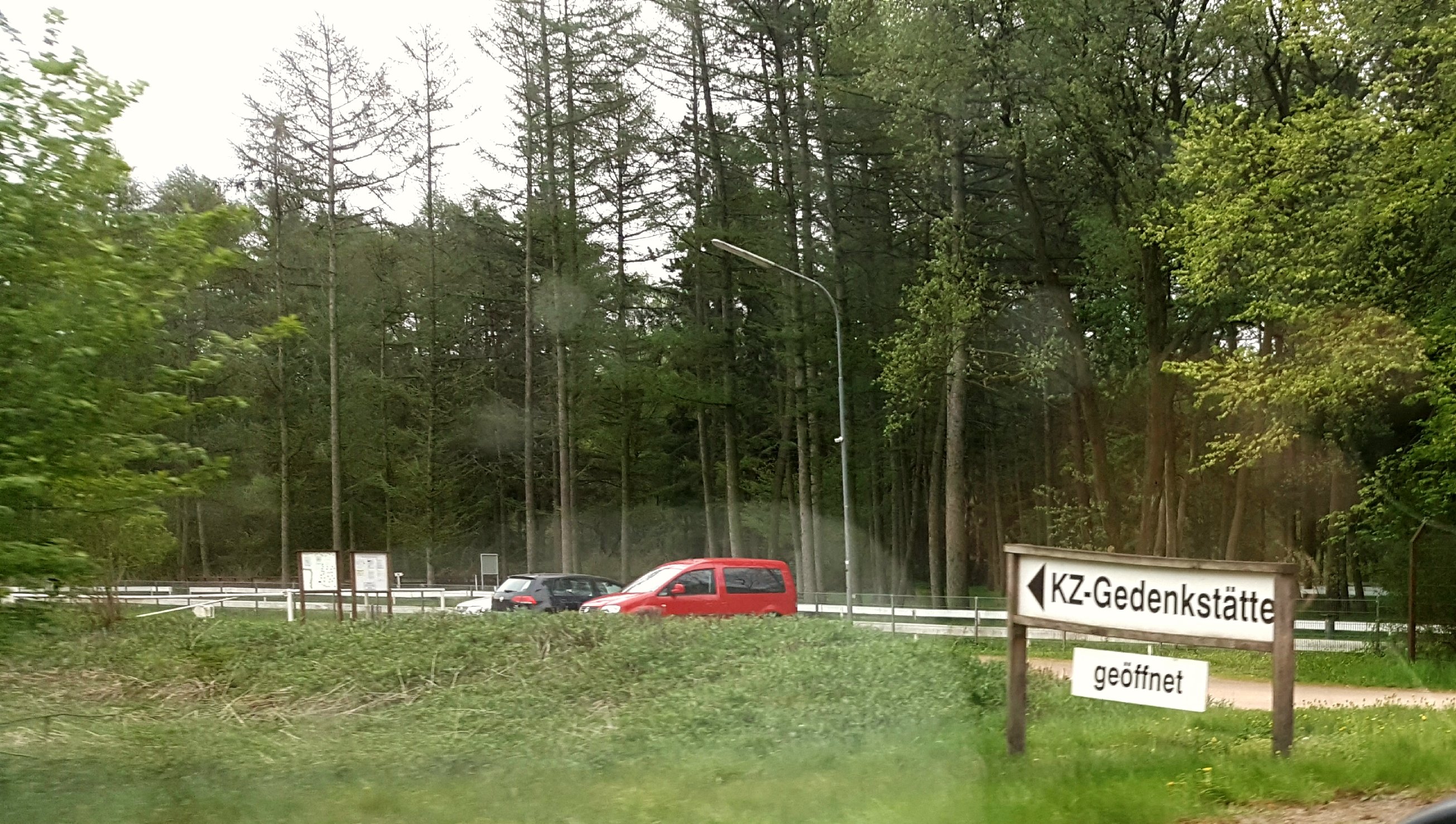
2) The “Sorry I’m late, I got held up by a WWII bomb” excuse
Totally a thing over here. Seems like every couple of months, construction on some new apartment building in downtown Hamburg is put on hold for a few hours so they can get someone in to disarm an undetonated WWII bomb! Not joking. They are still finding these things all over the place, even right in the middle of a modern city of almost 2 million, like this one right in downtown Hamburg this past May.
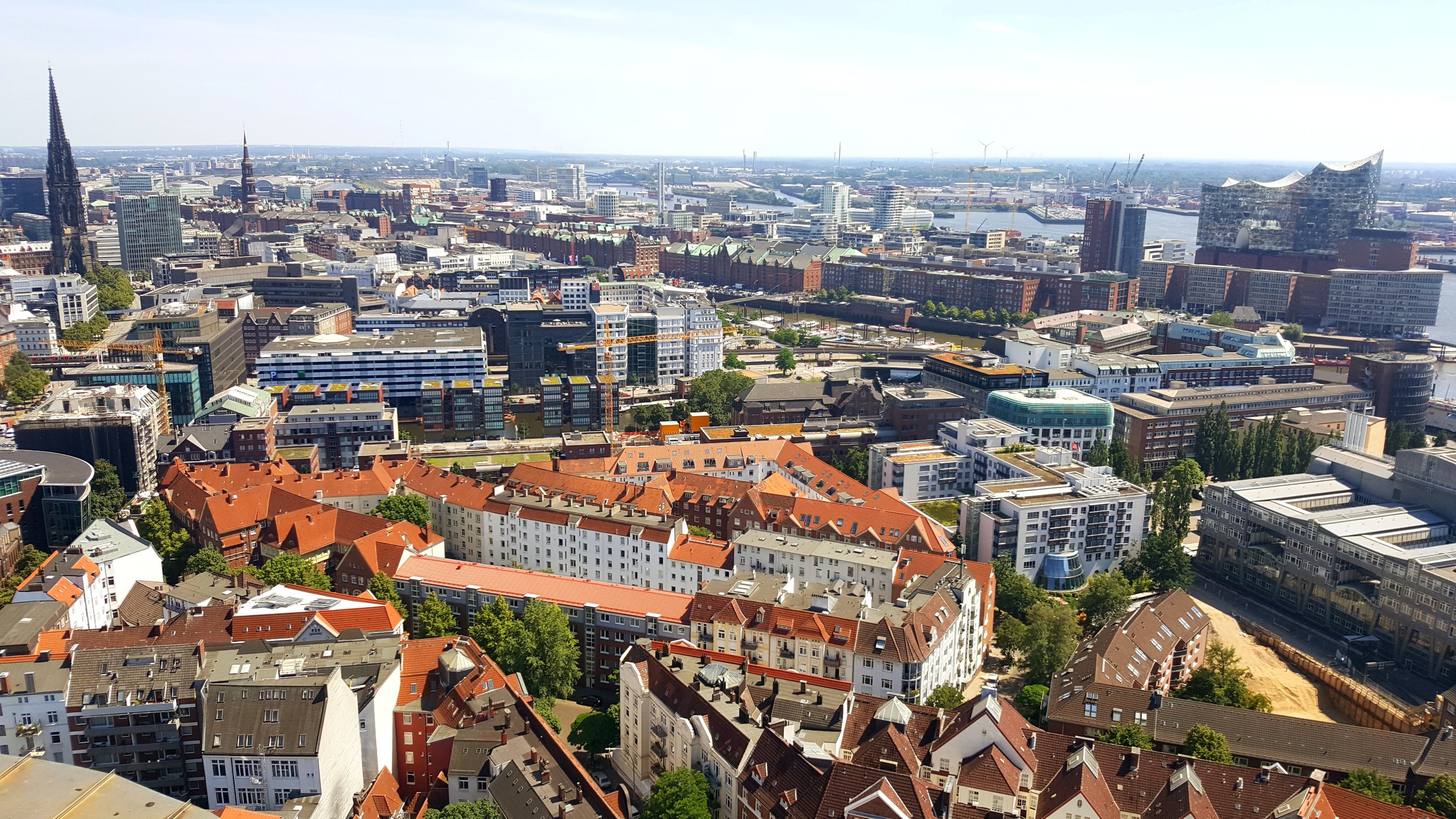
One evening, anticipating rush hour traffic, I left for work a little earlier than planned. This turned out to be a lucky break because upon arrival at work, I heard that the roads over the Elbe river bridges, the route I took only an hour earlier, were closed for the rest of the evening because construction workers found an undetonated bomb and were worried about it blowing up the bridges. Geez!
3) I pledge allegiance to the fl— NO. Just No.
Open patriotism is taken for granted in the States. I still remember the Pledge of Allegiance by heart, even though it’s been grade school since I probably recited it last. Standing up at the beginning of the school day, facing the flag, putting your hand over your heart, and reciting patriotic verses sounds very strange to Germans, even inconceivable. Patriotism is taboo because of the connotations it has due to Germany’s past.

Remember learning “America the Beautiful” and “My Country ‘Tis of Thee” in school? Germans don’t remember or even know German songs of this nature. They know at most their national anthem; the lyrics are taught briefly at school and then the topic is changed quickly. Even here, the tune was officially altered after WWII to remove a verse implying desires to become a superpower.
Sometimes I feel a little bad for modern-day Germans today because they are practically ashamed to be German, even though the events and crimes of the past have nothing to do with them. Germany also has a rich culture (think Goethe and Beethoven) and influence (think VW and Siemens) in the world, most of which is highly-esteemed. But, Germany will always have to pay a price for its past to ensure that such atrocities never occur again under their watch.
So it is a little spooky as an American, coming from a country where people proudly and openly display pride in their nation, to live in a country where people show at most modest but mostly non-existent patriotism, never uttering what a wonderful country it is to live in here, never saying they are “Proud to be a German”.
4) What were Germany’s colors again?
On the topic of patriotism and flags, not only a pledge to the flag but also flying one is a popular way to display your pride. Here, however, German flags are practically nowhere to be found – none proudly flown at front doors, lining downtowns, or decorating car dealerships here! In fact, it is weird when the German colors do start to pop up all over, something that happens every couple of years. The only time it is seen as “ok” to fly flags or tote “Germany” gear is in soccer season, especially during a World Cup year. Suddenly, German pride rages, flags are flung open on balconies, people paint black, red, and yellow stripes on their cheeks, car side mirrors are adorned with coverings in the German colors, and flags are flown!
All of which are of course swiftly removed once the World Cup is over…
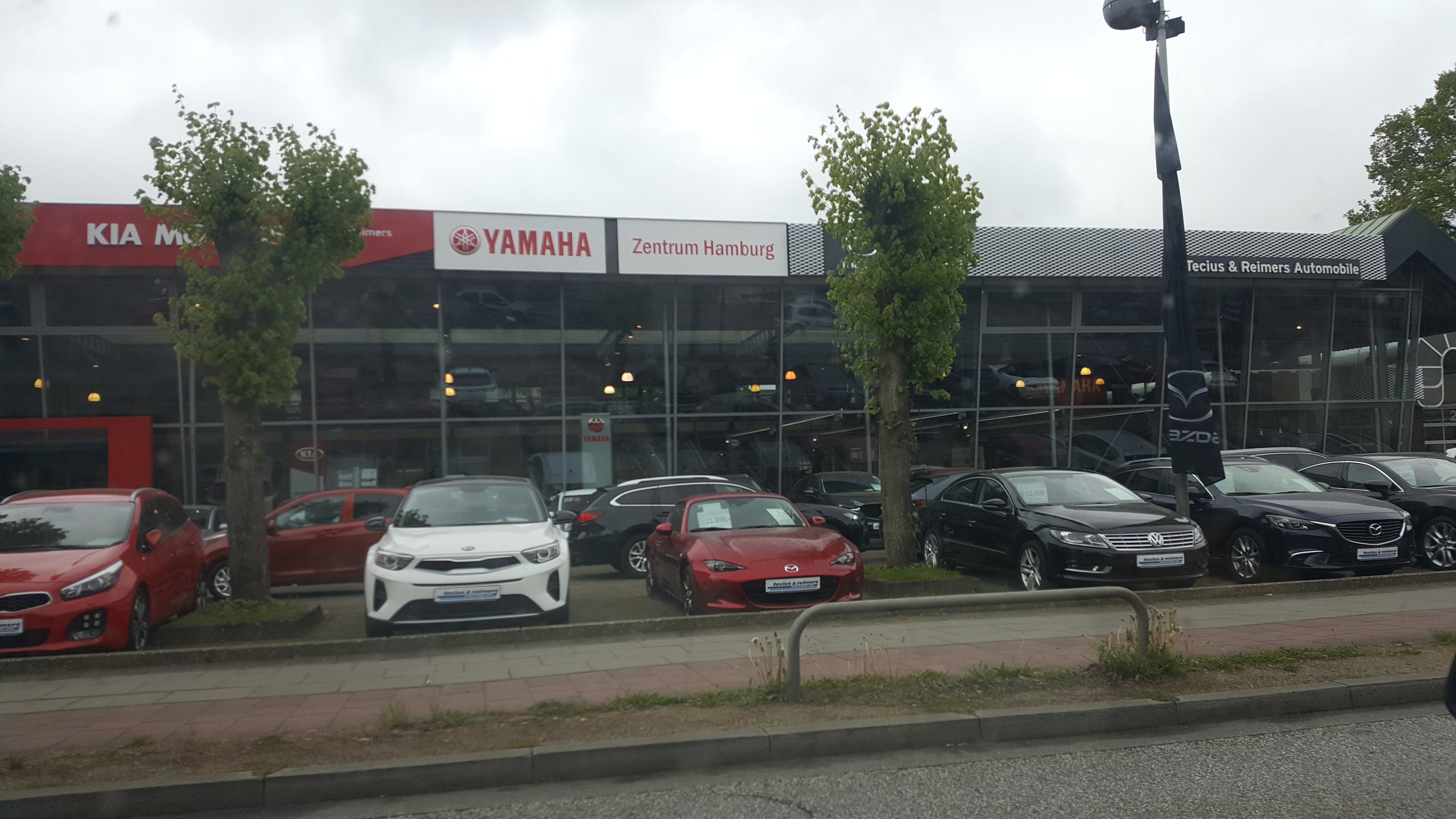
An exception here is pride on a more local level. Front yards can often be seen with a flag of a state or city flying high on a pole. Sports team flags are also popular. By “sports” I of course mean “sport”, soccer. So expect to see flags from the local soccer clubs.
5) The Rubble and the Rich
Another shocking reminder of the history of this country can still be seen in big cities, for example on a drive down one of Hamburg’s busiest streets, right through the downtown financial district on the Willy-Brandt-Straße. While admiring the tall office buildings of the German banks, trade companies, and advertising big shots, a ghost of the past suddenly emerges – the remains of the huge, Gothic-style St. Nikolai church appear. Left in ruins after being bombed in the Second World War, the well-preserved rubble serves as a poignant reminder of what happened on German soil. Even though you may drive past there every day on your way to work, like I did for several years, and overlook it after a while, you still “never forget”.
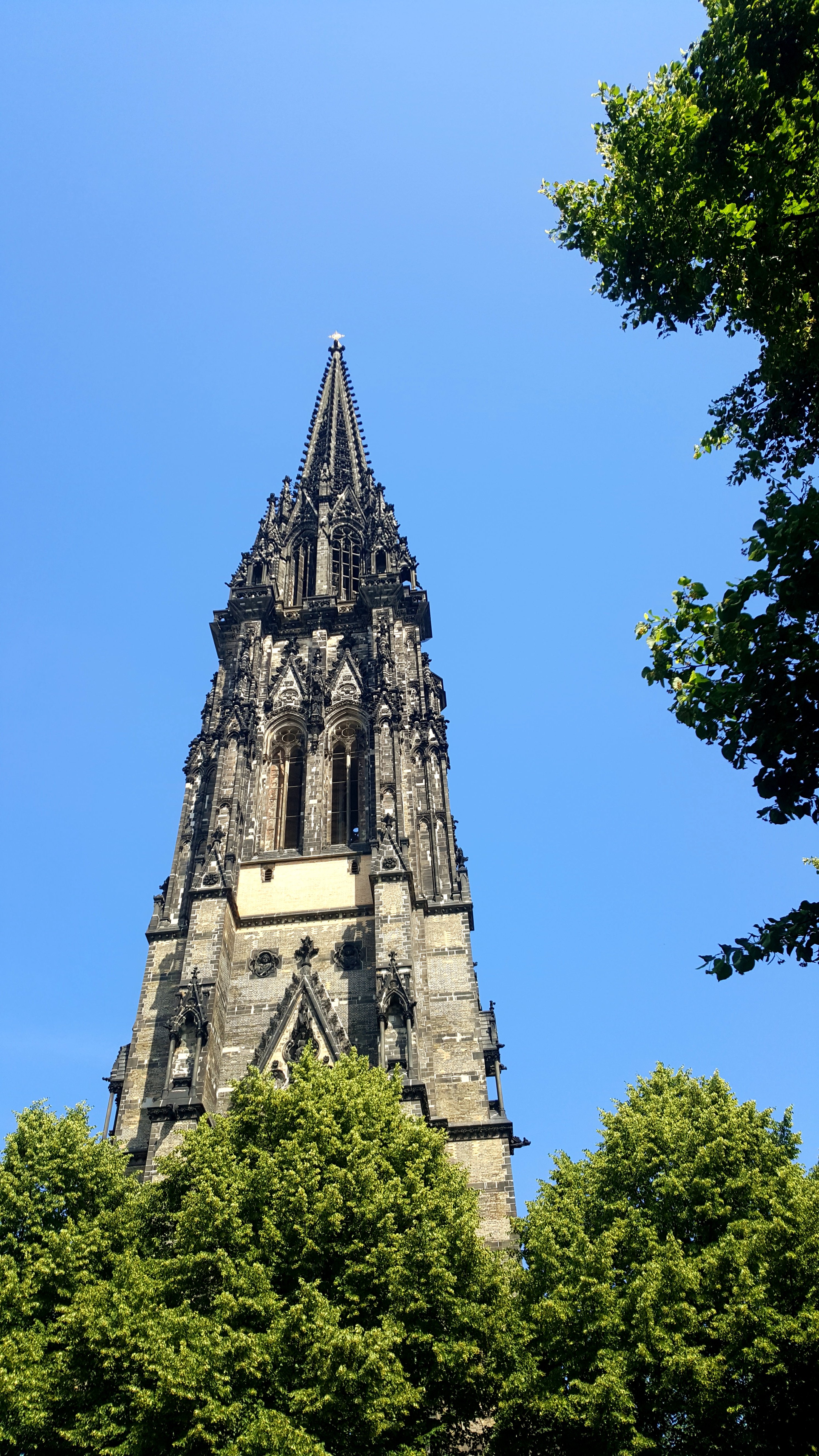
6) No grill outs and fireworks
While Americans will to anything to keep the mosquitoes at bay to see a good fireworks show and enjoy a cookout on the 4th of July, Germans do ABSOLUTELY NOTHING on their national holiday! No fun activities with friends and families here! They get to stay home from work, but there are no wide-spread traditions associated with German Reunification Day, the day that East and West Germany became one nation again to form the modern-day country. October 3rd comes and goes, uneventful, while some “West” Germans even (jokingly?) complain about having a solidarity tax taken out of their paycheck (like reparations taken out of your wages if you live in the West to help pay to rebuild the East). It is here the case again that showing too much pride would have inappropriate connotations due to Germany’s role in WWII.
But luckily, citizens in the land of sausages must not despair, there are plenty of other opportunities to grill out, and fireworks are more than abundant on New Year’s Eve…
7) Freedom of speech, sort of.
While we in America officially enjoy complete freedom of speech, with even those who have an anti-Semitic viewpoint allowed to hold rallies, this is not the case in Germany. This may seem like a prudent choice based on Germany’s history, but is nonetheless a little odd to think that not everyone can express their opinions how they would like. Punishable with jail time, displaying the swastika and other Nazi symbols is illegal (see this article just out today about a “Swastika” ride being shut down in Southern Germany), owning Hitler’s Mein Kampf is illegal, the former Nazi party is illegal, Holocaust denial is illegal, etc. There are modern-day Anti-Semites in Germany, but more and more action is being taken to stop this movement.
Even a house near us had a sign at the end of their driveway with the Bundesadler (or “Federal Eagle”) on it, symbolic for Germany long before the Nazi era, and the text Deutsches Schutzgebiet (or “German protectorate”), which originally was a word for Germany’s colonies but came to be symbolic of Nazi propaganda. I wasn’t aware of this symbolism, but my husband instantly pointed it out, surprised, and said the people living there are probably leaning in the forbidden direction of the Third Reich.
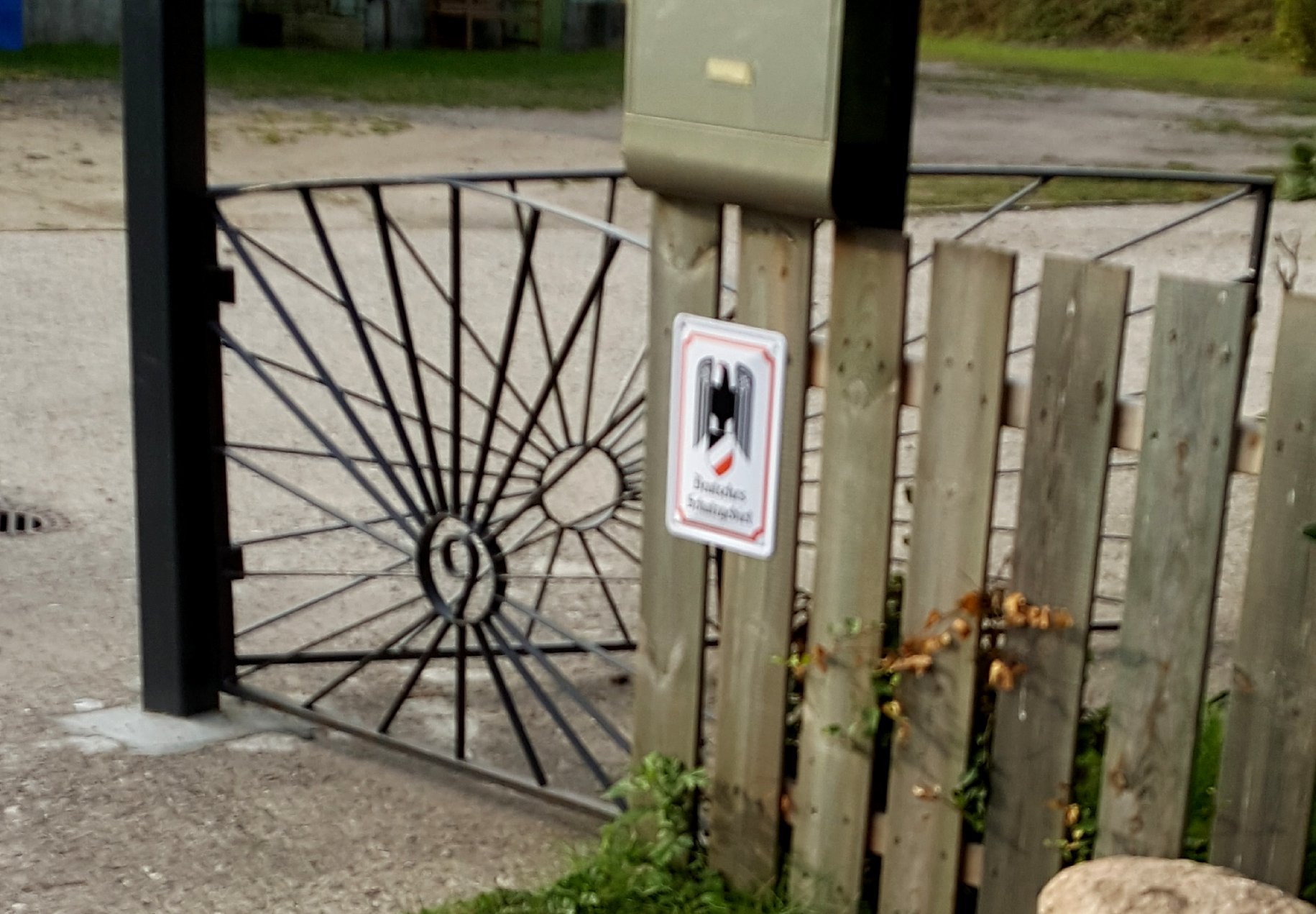
Recently, I noticed that the sign was gone – Was it due to social or neighborly pressure to remove? Was it all a big misunderstanding? Or maybe even the city asked them to take it down? I guess we will never know…
8) Cast into the shadows
One last noticeable feature of the German countryside that in part dates back to war times is something that you may not even really think twice about until you really look up. Most country roads are lined with trees, evenly spaced, some completely covering the road like a tunnel. Is this just township landscapers trying to ensure greenery, or is it more?
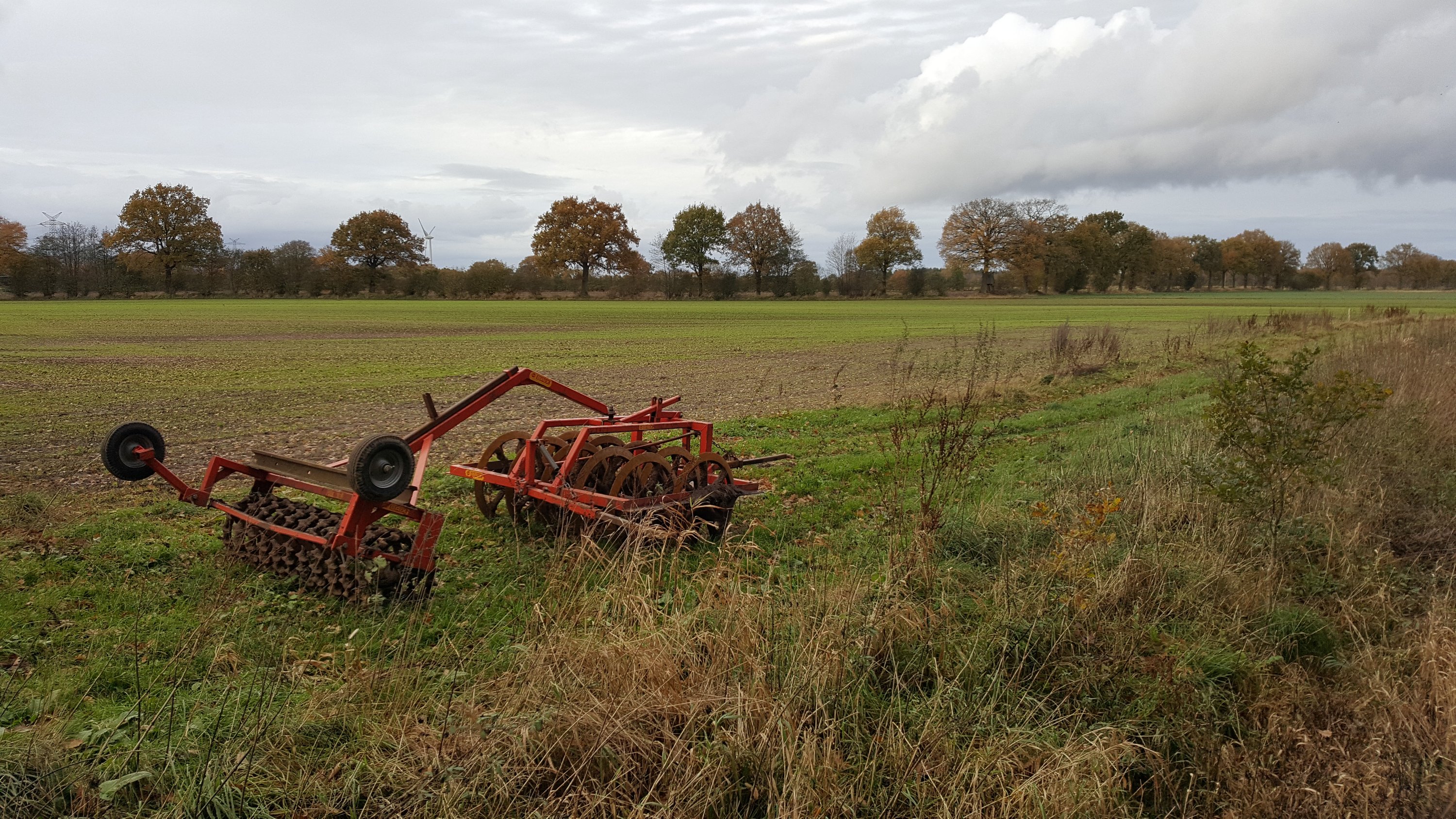
Apparently the idea to line the roads like “avenues” originated from Napoleon, offering soldiers shade during hot summer months when they needed to march. There are other reasons for maintaining this form of landscaping, but this is the only one with military implications.
Because of living in a country that is NOT actually at war today, it is even more strange and unexpected to have relics of war creep into day-to-day life. A truly European “old country” experience!